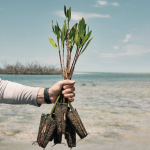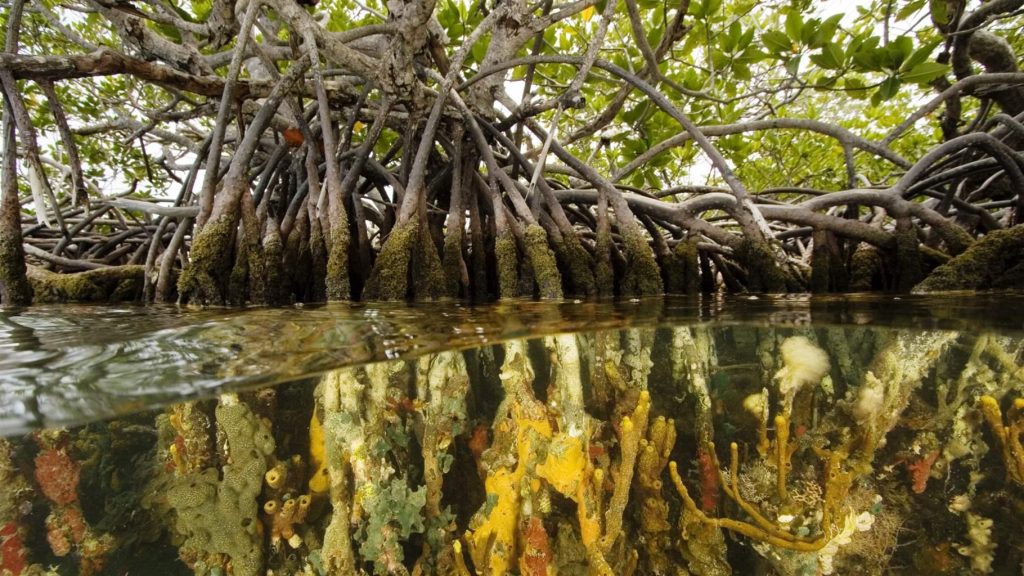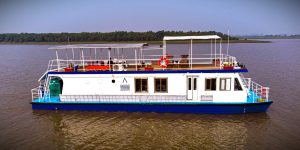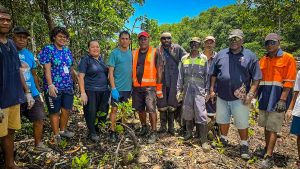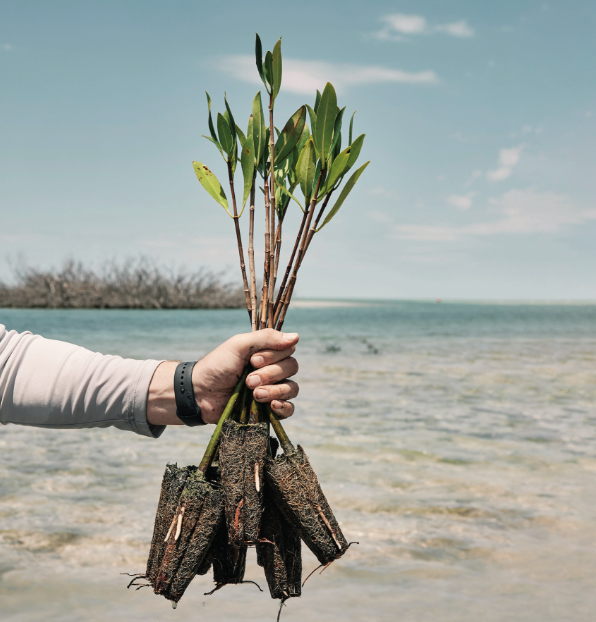Pew to partner on coastal wetlands and coral reefs.
Coastal ecosystems such as mangroves and coral reefs play a vital role in helping coastal communities adapt to climate change and providing protection against storms. However, these habitats are facing severe threats. According to the Global Mangrove Alliance, half of the worlds mangroves have been destroyed in the past 50 years. Additionally, a third of coral reefs have been lost due to various factors including warming waters, habitat destruction, overfishing, pollution, and ocean acidification (source=pewtrusts.org).
Recognizing the importance of coastal habitats in mitigating the impacts of climate change, the United Nations 2015 Paris Agreement established a framework for countries to commit to reducing carbon emissions and building resilience. As part of this, protecting “blue carbon” ecosystems like mangroves, seagrass beds, and salt marshes has been identified as a nature-based solution to combat climate change and support coastal communities (source=pewtrusts.org).
To further this mission, Pew launched the protecting coastal wetlands and coral reefs project in January 2019. The project aims to support the inclusion of comprehensive and measurable coastal wetlands protections in nations updated commitments to the Paris Agreement, known as nationally determined contributions (NDCs) (source=pewtrusts.org).
Over the past three years, Pew has collaborated with local organizations, research institutions, and governments in Belize, Costa Rica, and Seychelles to fill research, policy, and finance gaps for mangrove and seagrass conservation specific to these countries. These efforts have not only strengthened local expertise and capacity but also resulted in the inclusion of ambitious coastal wetlands protections in the updated 2020-21 NDCs of all three countries (source=pewtrusts.org).
Building on the success of the project, Pew is now expanding its efforts to accelerate wetlands conservation on a national scale in the Caribbean and Latin American and Western Indian Ocean regions. Working closely with local and regional partners, the project will provide technical assistance and strengthen research, policy, and finance capacities to enable nations to develop and implement NDCs with robust commitments to protect and restore their coastal wetlands (source=pewtrusts.org).
